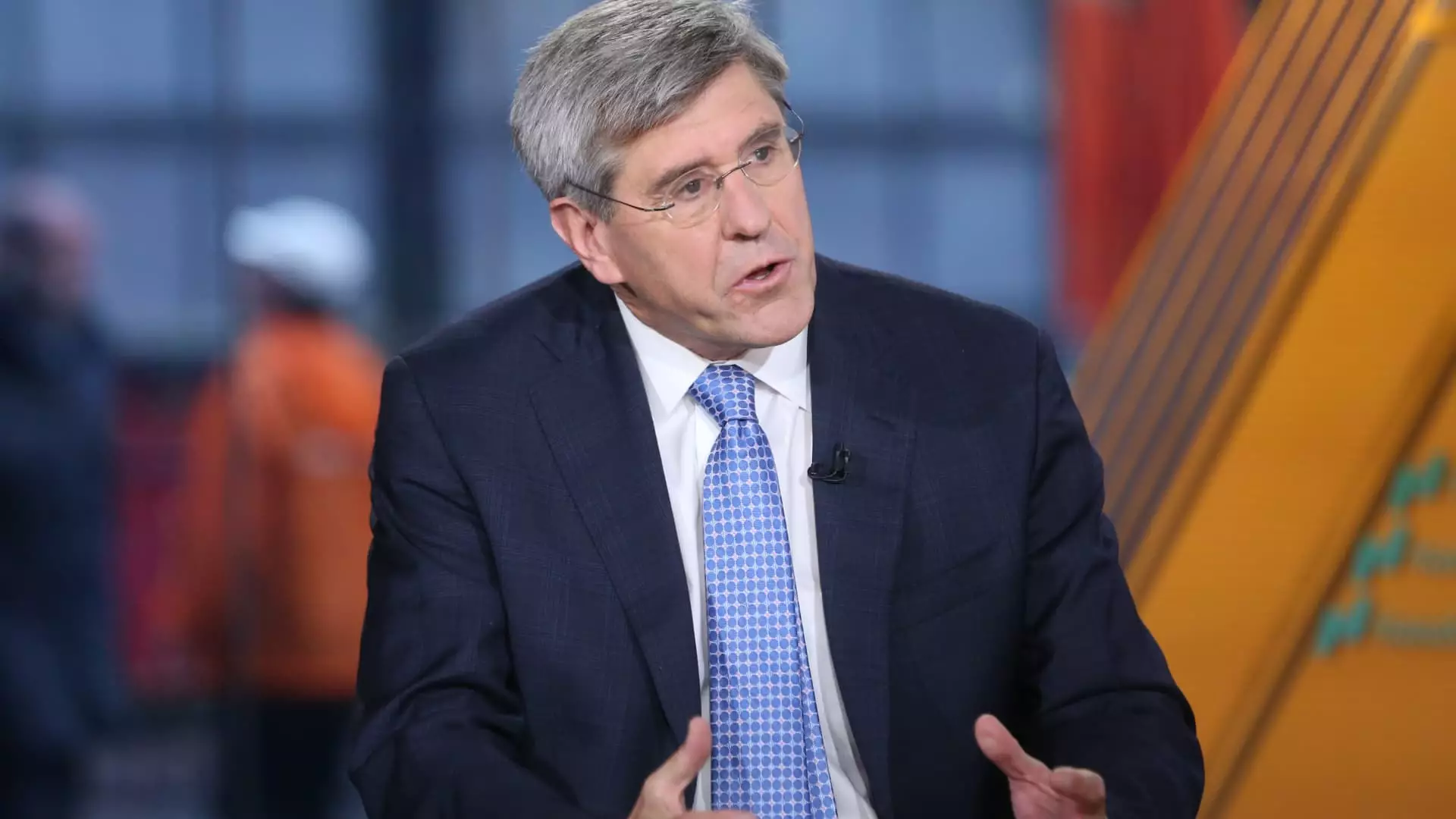In recent years, the trade relationship between the United States and China has faced numerous challenges and transformations. At the heart of this discourse is Stephen Moore, a former economic advisor to Donald Trump, who has provided insights into the nature of tariffs and their implications for both nations. His observations at a recent economic conference in Dubai emphasize the differing pain thresholds that both economies possess, revealing significant aspects of their global economic strategies. In this article, we explore Moore’s assertions and the implications they carry for international trade, geopolitics, and economic stability.
Moore elaborates on the Trump administration’s approach to tariffs, characterizing them as strategic instruments for negotiation rather than mere economic sanctions. He argues that the tariffs imposed on China were designed to alter the economic landscape in favor of U.S. interests, depicting the situation as a clash for dominance between the two superpowers. This perspective presents tariffs as a calculated move in a larger contest over economic supremacy, where leverage and strategic positioning are paramount.
The assertion that the trade conflict may be more accurately dubbed a “trade skirmish” rather than a full-scale war indicates a nuanced understanding of the situation’s complexity. While the term “trade war” connotes an extended and destructive conflict, Moore’s terminology suggests a more tactical engagement—one that might leave room for negotiation and resolution. This distinction invites further discussion on how both nations might choose to escalate or de-escalate tensions moving forward.
Moore’s insight regarding China’s economic resilience raises important questions about its capacity to weather the storm of escalating tariffs. He posits that China’s economy is currently fragile, which could exacerbate the negative impacts of trade barriers. This viewpoint challenges the often-held image of China as an invincible economic powerhouse and suggests that vulnerabilities exist within its economic framework.
Moreover, the notion that “China can’t win” the tariff conflict sheds light on the potential pitfalls Beijing faces. As tariffs rise, domestic industries may suffer, leading to broader economic repercussions. The emphasis on China’s lower pain threshold implies a pressing urgency for Chinese policymakers to act, lest they risk further strain on their economy.
Moore’s commentary extends beyond the U.S.-China dynamic, implicating European and Australian partners in the geopolitical fray. He argues that these nations face a pivotal choice between aligning with the U.S. or China, a dilemma compounded by the competing interests of global power structures. The complexity of this choice reflects broader geopolitical shifts and the struggle for influence, as nations reassess their allegiances in a rapidly evolving international landscape.
The tensions between China and the European Union concerning tariffs on electric vehicles further illustrate the intricacies of global trade politics. As nations great and small grapple with their positions, the decisions they make could reverberate throughout the global economy.
Beyond economic concerns, there are profound societal implications stemming from trade policies. Moore’s support for tariffs targeting Mexico and Canada, aimed at curbing the influx of illegal drugs, underscores a critical intersection of trade, public health, and crime. His assertion that securing cooperation from neighboring countries is essential for addressing drug trafficking reflects the multidimensional nature of trade policies.
However, this approach has its critics. The accusation of slander directed at Trump by Mexican officials highlights the strained diplomatic relations that tariffs can engender. The social ramifications of economic policies can lead to deterioration in international relationships, thereby complicating the prospects for collaboration on pressing issues like drug trafficking or environmental challenges.
As the U.S.-China and broader global trade landscapes continue to evolve, the insights shared by figures like Stephen Moore serve as critical touchpoints for understanding the underlying tension and possible resolutions. The balance of power between nations is no longer merely economic; it encompasses strategic alliances, societal welfare, and the future of global trade. Institutional frameworks, diplomatic endeavors, and public sentiments will all play crucial roles in shaping the pathways ahead.
In sum, while tariffs may serve as tools of negotiation, the broader implications they carry for global peace, cooperation, and economic stability inspire both caution and hope. Moving forward, it is imperative for leaders across the globe to critically navigate these complex dynamics to foster an environment conducive to collaborative growth and mutual benefit.

